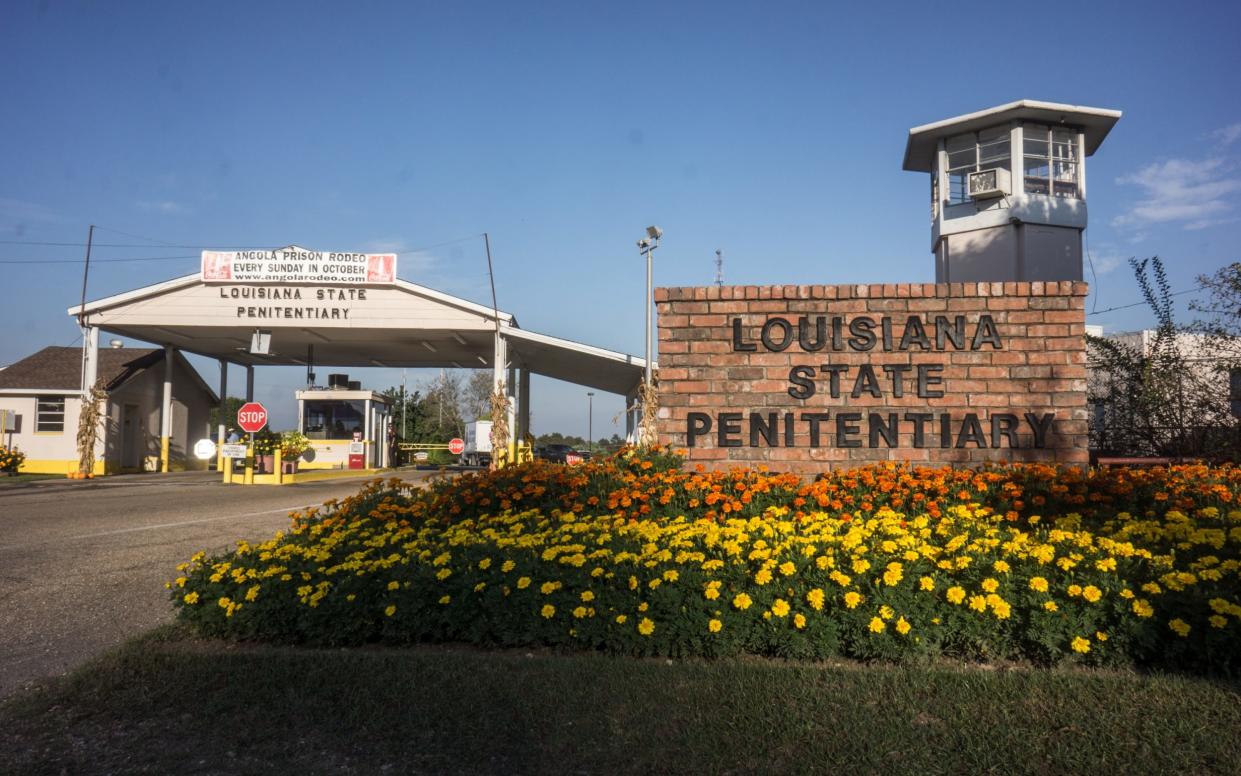Inmates bribed their way onto scheme to donate infected plasma

Inmates bribed their way onto a scheme to donate infected blood, documents seen by The Telegraph have revealed.
Plasma used to create a medical treatment used on NHS patients was collected from US prisons. Donors used bribes to bypass checks that should have screened out those who tested positive for hepatitis, used intravenous drugs and had unsafe tattoos.
The compromised plasma is at the heart of the infected blood scandal, in which thousands of people in Britain in the 1970s and 80s were given blood transfusions or blood products that were infected with viruses such as Hepatitis B, Hepatitis C and HIV.
The high-risk plasma was used in a “miracle” treatment for the genetic blood-clotting disorder haemophilia, called Factor VIII.
Prisoners at Louisiana State Penitentiary admitted to bribing fellow inmates to get a lucrative spot on a prison plasma scheme, which paid donors $15 (£12), according to court documents first published in The Poison Line: Life and Death in the Infected Blood Scandal, which were later taken into evidence by the Infected Blood Inquiry.
Richard Vincent, a former inmate at Louisiana State Penitentiary in a legal deposition, said: “You can bleed twice a week, that’s $30. Back then you could buy a carton of Camels for $6. And you could give that to one of the plasma workers... Then they didn’t care what you had.”
Companies including Bayer, Baxter and Armour pooled tens of thousands of donations together. Only one donor needed to have a virus for the whole batch to be contaminated.
Some 1,250 people with haemophilia in the UK contracted HIV from Factor VIII and up to 5,000 more with hepatitis C. In a parallel scandal, as many as 26,800 NHS patients were exposed to hepatitis C from blood transfusion; hundreds of whom could still be undiagnosed.
Survivors and bereaved family members are seeking compensation and an apology from the UK government, which oversaw the imports, when the Infected Blood Inquiry delivers its final report on May 20.
The plasma centre in the Louisiana prison was run by inmates who were paid $3 per day and overlooked basic safety.
“It wasn’t nothing to see people having sex in the bathroom before they go on the table to bleed,” said Vincent. “They had oral sex and anal sex then five minutes later they’re on the table giving blood.”
Vincent said he had hepatitis B and C, which he could have contracted from tattoos in prison or drug use.

Tom Mull, a retired lawyer who uncovered the plasma centre at Louisiana State Penitentiary and interviewed Vincent, said: “It was so outrageously irresponsible that it was hard to believe they had actually done it.”
Lorraine Mull, Mr Mull’s wife and legal partner, added: “It changed my whole view on some pharmaceutical companies. The sheer greed of it, corporate profits above the safety of people with haemophilia.”
David Grillette, another prisoner, told Mr Mull: “They knowingly let me donate blood plasma with hepatitis B.”
Grillette said staff knew about his drug use, “which makes the plasma people that much more at fault”.
He added, “If someone has become ill because of it, I feel awful.”
Vincent said he was told the plasma would be used for cosmetic products, not a medical treatment.
The US Food and Drug Administration licensed plasma centres in prisons in Arkansas, Arizona, Florida, Nevada, Tennessee and Mississippi.
Plasma collected at Louisiana State Penitentiary was used by Baxter Healthcare.
A public inquiry in Canada in 1997 found Factor VIII made with plasma collected in Arkansas prison had infected more than 1,000 Canadian people with HIV. Cutter, a subsidiary of Bayer, paid inmates $12 per week to work in that plasma centre.
In Britain, it is illegal to pay donors for plasma but as the country didn’t produce enough of its own Factor VIII it relied on imports from the US, where people could sell their plasma twice a week. Financial reward encouraged donors at higher-risk of blood-borne diseases, including intravenous drug users and sex workers.
Pharmaceutical companies also sourced plasma from nightclub districts and impoverished areas of US cities.
Adverts from the early 1980s show pharma companies calling for gay men to donate plasma to help create an immune treatment for hepatitis B. Those men were at greater risk of contracting HIV and their plasma was also used to make Factor VIII.
Worst epidemics in history
Michael Baum, lawyer at Wisner Baum who worked with Mr Mull, said: “It was as if all these haemophiliac kids were sharing needles with intravenous drug users and prisoners during one of the worst epidemics of blood borne diseases in history.
“That to my mind is a crime.”
Using evidence from Louisiana State Penitentiary and the advertisements for hepatitis B positive donors, the Mulls and Mr Baum won a $100 million settlement for 124 families from four pharmaceutical companies, Baxter, Bayer, Armour and Alpha.
The lawyers proved Bayer and Armour knowingly sold Factor VIII that contained hepatitis and HIV. The Infected Blood Inquiry heard those two companies and Baxter maintained a cosy relationship with NHS doctors in the Aids crisis through monetary rebates and research grants.
A spokesman for Bayer said it is cooperating with the Infected Blood Inquiry and it would be inappropriate to comment in detail before the report.
They said: “Bayer is truly sorry that this tragic situation occurred and that therapies that were developed by Bayer Group companies, and were prescribed by doctors to save and improve lives, in fact ended up causing so much suffering to so many.”
A spokesman for Baxter said: “We sympathise with anyone impacted by infected blood in the 1970s and 1980s. Baxter is committed to providing the highest quality products to its patients and customers, and to conducting its business ethically and compliantly.”


